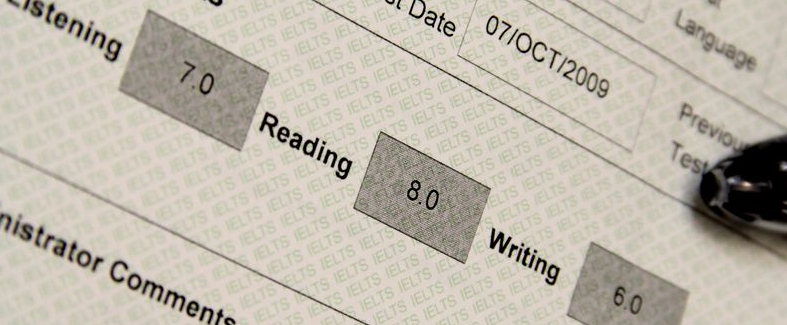 Every year millions of students from all over the world sit for the IELTS test or as you know it, The International English Testing system. This test is sponsored by British Council to check the English reading and writing skills of non-native English speakers. Needless to say, to excel in this test an aspirant requires being completely at par with vocabulary.
Every year millions of students from all over the world sit for the IELTS test or as you know it, The International English Testing system. This test is sponsored by British Council to check the English reading and writing skills of non-native English speakers. Needless to say, to excel in this test an aspirant requires being completely at par with vocabulary.
About 25% of scores of English reading and writing is solely dependent on vocabulary, so it should not be a wonder why vocabulary is indispensable for this test. The English language owns a plethora of words having diverse meanings which can give you a tough tie if not understood completely. Without having any hint about the proper utilization of vocabulary can make an aspirant score poorly in the reading comprehension as well as the writing sections.
What are the possibilities of going wrong?
Past trends suggest that most aspirants tend to undermine the importance of grasping vocabulary skills from day 1 and thus don’t sharpen their skills. Most students surf the internet to hunt for vocabularies and download them, but they don’t find enough motivation to learn the words afterward. And even though few made a routine to memorize some new words on a regular basis, they seem to have a little or almost no help. An aspirant should not build in hopes of scoring fairly in the test just by memorizing the words by heart. Learning by heart would not grant you analytical skills to determine the perfect usage of those words or convey you where they fit in a sentence. Since you might find most of the words strange, memorizing them would not serve your purpose of strengthening your IELTS preparation.
How can you make it right?
The only way you can boost your vocabulary preparation for IELTS is when you will learn the words from articles or tidbits of information and not from any boring list.
Follow these simple steps and within no time you will see you preparation achieving heights of success:
- Subscribe a magazine or go grab a book which interests you. Just for the sake of maintaining a serious exam ambiance don’t go for something which fails to excite you. You can also subscribe to online magazines or blogs if you spend quite a few hours online.
- Allot a separate notebook just for writing English words on a daily basis.
- Now all you have to do is to read the articles or books and note down 20 strange words every day. Don’t search their meanings from the dictionary right away; instead, try to determine their meanings by analyzing their context. Then you can check your answer from an online or offline dictionary.
- Your job doesn’t end here, as you also have to note down the synonyms, antonyms, collocations as well as the correct pronunciation (write this in your mother tongue). After you have accomplished this, make one or two sentences with each word and write it beside the meanings, as this will help you to remember what you have learned.
- Continue doing this every day, but after two weeks don’t forget to revise the words you have listed previously.
- And within the next 5 days, not only you will be familiarized with 100 unknown words but you will also grasp their usage, antonyms,and
Note: if you feel that you are finding it tough to remember the words during revising them, reduce it from 20 to 15 and you will be fine.
Alternative choice
If you feel reading would bore you at the fullest then you can listen to radio shows or even watch movies and series in English. And once you hear an unfamiliar word, jot it down in your notebook. However, you have to be really fast because you cannot look up the spelling of the world afterward in this case.
Also, you can think about visiting the sites which would aid in your preparation to a great extent:
Breaking News English– apt for English learners of all levels –from beginners to pros. You will find tons of informative articles about current events.
Another great new site isBBC World News as they use rich vocabulary skills in their write-ups.
If nature or animals interest you then keep your ears open for BBC Earth.
How to master collocations?
Once you have learned almost 400 words within a month or so, it’s time to focus on how to form collocations and synonyms. Collocations are an excellent way of strengthening your vocabulary skills provided you use them appropriately. Here are some examples to assist you:
- Terribly sorry not very sorry
- Heavy rain,not weighty rain
- Great fun and not big fun
For aspirants belonging to countries where the English language is not the source of communication, the job is harder and therefore boosting for the vocabulary the right way is mandatory.







